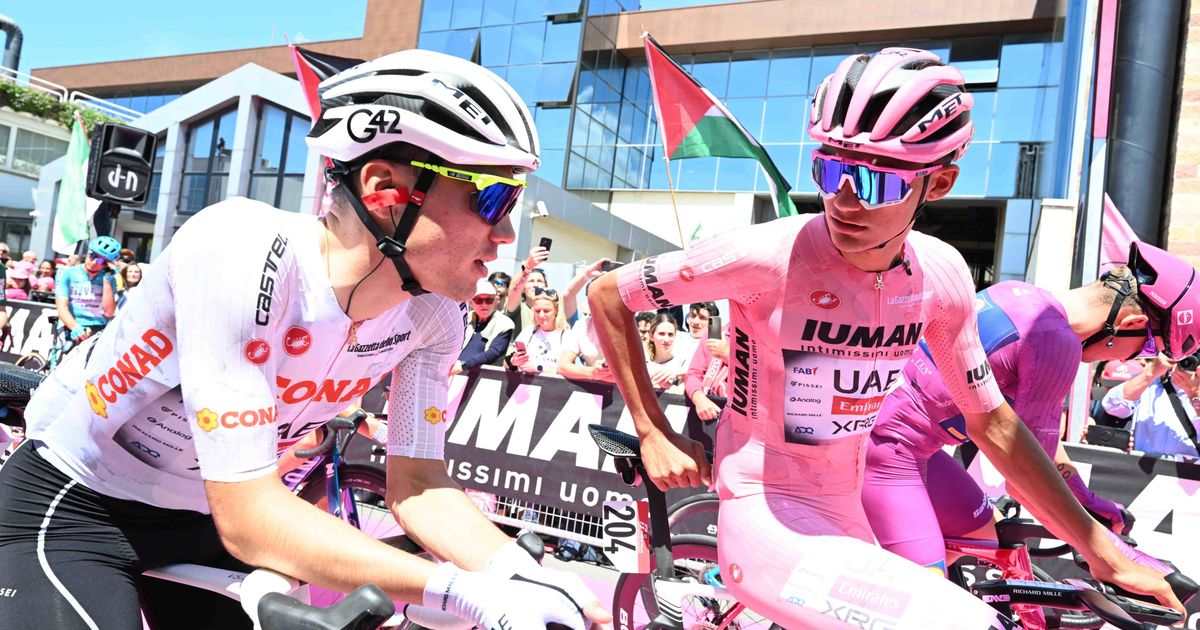Early fireworks
Both riders exploded out of the blocks in March. Ayuso took wins at the Faun Drôme Classic and Trofeo Laigueglia, while Del Toro struck first with a statement victory at Milano–Torino.
Ayuso followed up with a Tirreno–Adriatico stage win and the overall title, then claimed another stage and second overall behind Primož Roglič at the Volta a Catalunya. By May, the Giro start line was loaded: Roglič and Ayuso were the pre-race favourites for pink.
Both stumbled, but Ayuso salvaged a stage. Del Toro, on the other hand, soared — wearing the maglia rosa deep into the race, adding a stage win and leading until the penultimate day. Only Simon Yates’ late surge denied him a stunning overall victory.
The turning point
After Italy, their seasons flipped completely. Ayuso’s form evaporated. Del Toro couldn’t stop winning.
The Mexican sensation went on a tear, taking the Tour of Austria with three stage victories, plus triumphs at the Clàssica Terres de l’Ebre, Circuito de Getxo, Vuelta a Burgos, GP Industria & Artigianato, Giro della Toscana, Coppa Sabatini, Trofeo Matteotti, Giro dell’Emilia, Gran Piemonte and Giro del Veneto.
He even pulled off a national-championship double at home in Mexico, winning both the time trial and road race.
Ayuso resurfaced at the Vuelta a España as a late replacement for Pogačar, claiming two stage wins but staying clear of the general classification battle. Soon after, his move to Lidl–Trek was confirmed, ending his time with UAE.
Numbers tell one story — context tells another
By year’s end, Del Toro had racked up 16 wins, twice Ayuso’s eight. But the Spanish rider’s victories carried more prestige: six came at WorldTour level, three in Grand Tours, while Del Toro’s only top-tier success was his Giro stage.
Still, for a 21-year-old in his first full season among the elite, Del Toro’s consistency was astonishing. If Ayuso’s transfer signals a reboot, Del Toro’s rise could reshape UAE’s hierarchy — and perhaps cycling’s next era.

